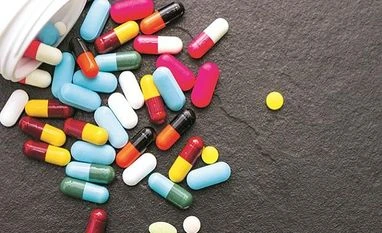The production-linked incentive (PLI) scheme to boost local manufacturing of bulk drugs or ingredients to make medicines has been revised, making it more industry friendly.
Industry sources say that while not all their recommendations have been accepted by the Centre, the changes to the scheme nonetheless will encourage more micro, small and medium enterprises (MSMEs) to come forward now.
The most significant change to the scheme is the removal of the minimum investment criterion to be eligible for the incentive, replacing it instead with a minimum production volume for each of the products identified under the scheme.
Also, the government has now deleted the provision which restricted the sale of eligible products for the domestic market to receive incentives. Now exports will also be considered.
Industry sources revealed that the government had already received 125 expressions of Interest for the scheme, and the revised scheme will now enable MSME players to come forward.
B R Sikri, co-chairman of the Federation of Pharma Entrepreneurs, and vice-president of the Bulk Drug Manufacturers Association of India, said that with the new PLI scheme, 80 per cent of the chemical synthesis-based products will now be made in India.
As for the fermentation products, Sikri said it was too early to comment as that would depend on who could procure the technology to make these old molecules.
In July, the government notified the Rs 6,940-crore PLI scheme to boost local bulk drug manufacturing and reducing dependence on imports.
Around 53 active pharmaceutical ingredients covering 41 products have been identified by the government, for which companies will be eligible for financial incentives if they set up greenfield manufacturing in the country.
According to the notification, bulk drugs accounted for 63 per cent of the total pharmaceutical imports in the country in 2018-19 (FY19).
The industry, however, was not happy with the scheme and recommended changes. The technical committee under the Department of Pharmaceuticals had submitted its recommendations in the first week of October.
The government noted on Thursday that the replacement of the criteria of 'minimum threshold' investment was being made to encourage 'efficient use of productive capital' as the amount of investment required to achieve a particular level of production depended upon the choice of technology.
The scheme is for greenfield production, but it can be at a plant site where one already has a facility. Therefore, the cost of land could be less for someone with extra land at one of their plant sites.
According to the earlier scheme, manufacturers would have had to invest Rs 20 crore to set up a new facility, which may be inside an existing manufacturing plant premise and make the selected bulk drugs to avail of the scheme.
The industry welcomed this change and said it made the scheme more efficient since the government would now evaluate if one is meeting the minimum production criterion for each of the identified products, and not how one is doing it.
Changes to the minimum annual production capacity for 10 products (Tetracycline, Neomycin, Para Amino Phenol, Meropenem, Artesunate, Losartan, Telmisartan, Acyclovir, Ciprofloxacin, and Aspirin) are now part of the eligibility criteria under the scheme.
In a press statement, the Ministry of Chemicals and Fertilisers said the deletion of the provision restricting the sales of eligible products to the domestic market only brings the scheme in line with other PLI schemes and encourages market diversification.
The tenure of the scheme has been extended by one year, keeping in mind the capital expenditure expected to be done by the selected applicants in 2021-22 (FY22).
Accordingly, the sales for the purpose of availing of incentives will be accounted for five years starting from 2022-23 instead of FY22.
The industry had wanted brownfield projects to be also given some incentives if they produced the identified products. However, this has not been accepted by the government.
A senior government official said the idea to link the incentives to investing in setting up facilities (whether brownfield or greenfield) is to generate employment. "There will be a multiplier effect when one expands a manufacturing facility,”said the official.
Bulk drugs accounted for 63 per cent of the total pharmaceutical imports in the country in FY19.
Unlock 30+ premium stories daily hand-picked by our editors, across devices on browser and app.
Pick your 5 favourite companies, get a daily email with all news updates on them.
Full access to our intuitive epaper - clip, save, share articles from any device; newspaper archives from 2006.
Preferential invites to Business Standard events.
Curated newsletters on markets, personal finance, policy & politics, start-ups, technology, and more.
)